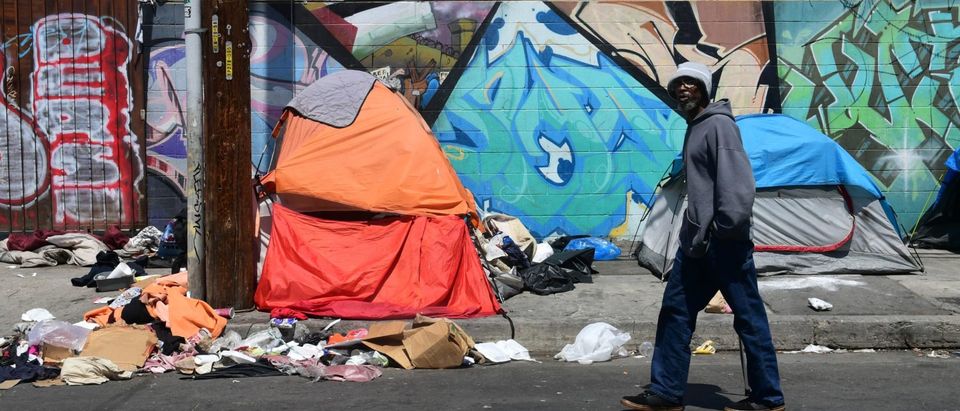A recent New York Times story posed an interesting question. “California is booming,” the Times says. “Why are so many Californians unhappy?”
Despite Gov. Gavin Newsom’s recent 2-hour-and-50-minute budget announcement – where he boasted of his administration’s “successes” – there are many troubling signs the state is slowing down. Chief among them is news that California may lose a congressional seat for the first time in its history.
Based on the Census Bureau’s recently-released population estimates, California’s representation in the U.S. House could fall from 53 to 52. Meanwhile, Arizona, Texas, and Colorado, sanctuary states for Californians fleeing the blue state blues, are likely to increase their House delegations.
Texas might add as many as three seats. Only California, with 39.5 million people, has a larger population. Yet that might change inside a generation.
California’s population grew by a sclerotic 0.1% from 2018 to 2019, says the Census Bureau. Over the same period, Texas’ expanded by 1.3%. Should Texas continue to increase at this rate, “while California plateaus or even declines,” reports Quartz, “the population of Texas could overtake California in the next several decades.” The positions would change in 2045 — the same year California is scheduled to have fully converted all of its energy sources to renewables.
By no coincidence, Texas was just named the 2019 State of the Year by Business Facilities magazine. It’s the fourth year it has taken the title and is the only state that has won it four times. Texas was chosen because its top five projects “last year brought a tidal wave of more than $30 billion” in capital expenditures, “while the top five job-creating projects netted nearly 15,000 direct new jobs.”
According to Business Facilities, two California companies were behind “the biggest job-creating projects” in Texas in 2019: “Uber’s new administrative hub in Dallas and a $1 billion investment by Apple in metro Austin.”
The award is but one of the many differences between California and Texas, and between California and any other dynamic red state that’s attracting capital, businesses, entrepreneurs and workers.
California arguably has created the most difficult set of blue-state problems in the country. It consistently ranks at or near the bottom in a number of measures. It is the worst state in which to do business (a distinction it’s held since the early years of the Schwarzenegger administration), is 48th in business-tax burden, and is second from the bottom in the Cato Institute’s “Freedom Index,” which ranks states based on policies impacting personal and economic freedom. It also has some of the worst traffic on Earth, and it is the second-hottest of states rated as judicial hellholes.
This hasn’t gone unnoticed by residents. No state lost more to domestic migration in 2019 than California, which had a net loss of 203,414, according to the Census Bureau.
This isn’t a one-year blip. From 2010 to 2017, California lost roughly 545,000 to net domestic migration, says Wendell Cox of Demographia.
It might not have yet dawned on those in power, but people do get fed up with punishing taxes, some of the planet’s costliest housing, a chilly business climate, steep energy costs, runaway homelessness, man-made drought, wildfires stoked by poor public policy, extreme poverty side-by-side with extreme wealth, virtue-signaling environmental legislation, and a constant manipulation of the governed by the governing.
Even more poison was dumped into this toxic stew last year when lawmakers passed, and Gov. Gavin Newsom signed Assembly Bill 5. Under the guise of ensuring fairness, it virtually outlaws freelance work in the state by requiring nearly every worker to be a hired employee.
Some of the 2 million workers and hundreds of businesses affected by AB5 are punching back. But if multiple lawsuits, a ballot initiative and a refusal to comply with the law can’t turn it back, how many more residents and businesses will quit California and relocate to states where their ambition, productivity and innovative spirit are welcomed rather than shunned?
Even before AB5, California became practically unlivable for much of the middle class. The story of Kelly Rudiger’s family of four, which moved to Texas in 2017 because it could no longer afford to live in California, and “could never get ahead,” is far too common. It’s one that will continue to be repeated in 2020 and beyond. Policymakers could reverse the trend, but it will likely take the loss of more congressional seats before they change their ways.
Kerry Jackson is a fellow with the Center for California Reform at the Pacific Research Institute.


